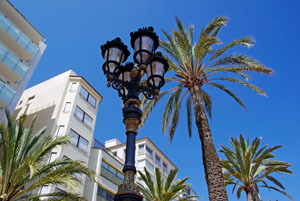 As one of the most popular areas in Europe for second home purchasers, Marbella faces some unique problems. Although many of its inhabitants spend only a few weeks per year in the area, they nonetheless expect the range and quality of amenities that one would anticipate from a world class destination.
As one of the most popular areas in Europe for second home purchasers, Marbella faces some unique problems. Although many of its inhabitants spend only a few weeks per year in the area, they nonetheless expect the range and quality of amenities that one would anticipate from a world class destination.
This is one of two related problems that recently faced Marbella’s municipality; the other was the fact that the catastral value of Marbella’s properties had not been amended for 23 years. The catastral is an estimate of the capital value of a property, very similar to the UK’s rateable value though that is based on a rent estimate. The catastral value is used as a reference point for tax purposes such as Wealth Tax and ‘Plus valia’ (Capital Gains tax), by both national and local government. Real estate values have undergone huge changes since the late 80s, so the values were well out of date. However, such has been the rollercoaster of values over recent years that in the time the authorities acquired the comparisons on which the new values are based, the market had dropped substantially. Accordingly, there can be considerable anomalies between a catastral value that has been traditionally less than market value and suddenly finding that the revaluation has created a catastral value substantially higher than that at which the property could be and is being sold.
It is possible to appeal against the Catastral value if an owner feels that it is well above the actual market value. There is a strict timetable for these appeals and they can be relatively costly, but considering that all the property related taxes will be based upon it, it may be worthy of consideration.
As part of a rolling programme around the country, the catastral authorities have revalued every property and the area of land. Whilst undoubtedly important, the individual value itself is of less significance as long as it is valued on the same basis as neighbouring properties and that the various multipliers used upon it to obtain the tax level are fair. Revaluation is often used as an excuse by politicians to apply a multiplier that brings in additional tax and this is what we’re seeing at this time.
As far as most homeowners are concerned, the most obvious outcome of this new assessment will be an increase in the amount of IBI that they will be expected to pay. Because of a multiplier reduced less than the values have been increased, almost every householder in the Marbella area has experienced a significant increase in payments on their apartment, townhouse or villa.
There is some good news, though – it was announced that the IBI payment increases would be introduced gradually over the next 10 years and that those whose Marbella property constitutes their main place of residence will be eligible for a discount.
Homeowners who conform to this category have until the end of March to apply for the IBI subsidy, which has resulted in long queues forming outside Marbella’s Town Hall. This surely can have been no surprise to the local authorities, since the discount for many could be substantial.
Those whose property has a catastral value of under 100,000€ will be in line for a 10 per cent discount; homes between 100,000€ and 200,000€ can claim a five per cent reduction; a home rated at a value of 200,000€ to 300,000€ will be eligible for three per cent relief; and even property valued at more than 300,000€ will be able to claim back one-and-a-half per cent.
All that the householder needs to do to claim this subsidy is to prove that they are registered on the local population register or padron. This is designed to encourage all Spanish and foreign residents to register. The benefit for the Marbella authorities plus others such as health boards etc, is that they are entitled to funding from the central and regional authorities according to the number of registered residents.
Some foreign property owners have only just heard about this subsidy, which is one of the factors blamed for the current backlog outside the Town Hall, as potential recipients hope to register their property before the cut-off date.
Residents in other municipalities outside Marbella should also check with their own town halls to see whether similar schemes are being operated.




